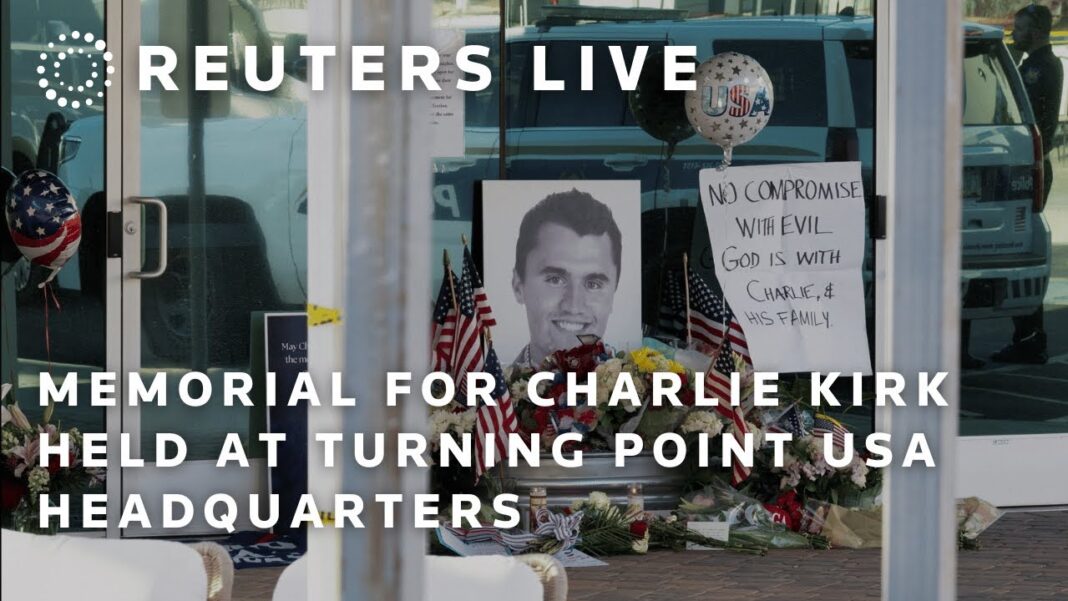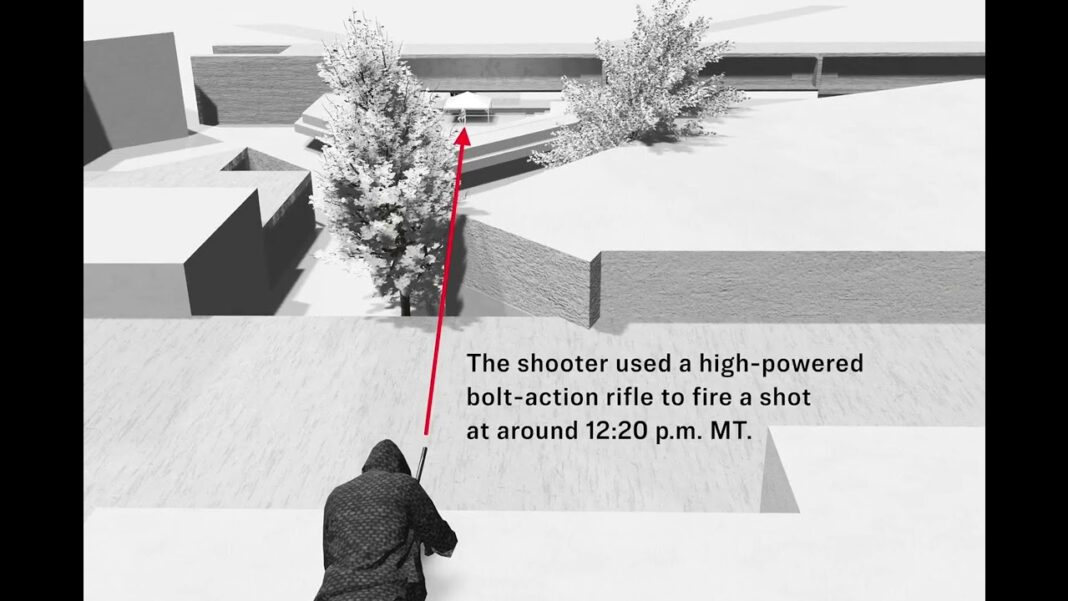Political scholars and ordinary people believe the slaying of the 31-year-old political commentator is a possible watershed moment for the nation.
The Sept. 10 death of Charlie Kirk—the highest-profile American political figure to be assassinated in nearly six decades—represents a tipping point for the nation, legal scholars and others told The Epoch Times. How leaders and the populace react to it could determine whether the tide of political violence continues to rise—or recedes.
The 31-year-old father of two was fatally shot in the neck as he spoke on a Utah college campus. As of Sept. 11, the gunman remained unidentified and on the loose; police detained two people but released both after questioning.
Susan MacManus, a Florida political scholar for a half-century, said Kirk’s slaying could spark important changes.
“But is it going to be a catalyst for the two parties coming together and saying, ‘Enough of this?’” she asked. “Or is it just going to be a catalyst for even further deepening the polarization in this country?”
She worries that it could be the latter, given that “right now, the two words that are most missing in our politics are ‘civility’ and ‘compromise.’”
MacManus told The Epoch Times that she sees another contributing factor: Americans are awash in a culture of violence, ranging from images in movies and news reports to video games “where you win if you ‘kill’ people.”
When Kirk was gunned down, he was answering an attendee’s question about transgender suspects committing mass shootings. Any possible significance of that timing remains unknown, along with the gunman’s motive. In addition, Kirk had posted on social media earlier this year that he was concerned about studies showing the glorification of “assassination culture” in America.
Many people, including Utah Gov. Spencer Cox, have labeled Kirk’s death as a “political assassination.”
The founder of the Turning Point USA conservative organization, Kirk influenced millions of people, President Donald Trump said in an address hours after the shooting. Trump called for an end to political violence and vowed that his administration will root out “each and every one of those who contributed to this atrocity and to other political violence.”
As a candidate in 2024, Trump himself was the target of attempted assassinations in Pennsylvania and Florida.
High-profile mass shootings at schools and the targeted assassination of United Healthcare CEO Brian Thompson have also rattled the American psyche and affected political discourse.
This year, an arsonist targeted the Democratic Pennsylvania governor’s residence in April. And in June, a gunman shot two Democratic Minnesota lawmakers and their spouses.
The Aug. 22 fatal knife attack of a young Ukrainian woman aboard a Charlotte train, captured on video, seems to have touched off the most outrage, MacManus noted.
Many other violent incidents have affected American politics, directly or indirectly, in recent years.
Asked to put Kirk’s assassination into context, Jeff Bloodworth, professor of American political history at Pennsylvania’s Gannon University, told The Epoch Times the nation has had “many, many moments of political violence,” far more than “our western cousins.”
He called Kirk’s slaying “another sad chapter in a ‘book’ that nobody wants to read.”
Looking at the current situation, he said, “It’s telling when you have to say, ‘Well, it’s not as bad as 1968, right?’”
That was the year Robert F. Kennedy, a Democratic U.S. Senator and presidential candidate, and civil rights leader Dr. Martin Luther King Jr., were both assassinated. Those slayings followed the assassination of Democratic President John F. Kennedy (Sen. Kennedy’s brother) in 1963.
In the decades since, violence against other notable national figures has included the 2017 shooting of House Republican Whip Steve Scalise, who survived despite serious injuries; the 1981 non-fatal shooting of President Ronald Reagan, a Republican; and a 2011 attack on Democratic Arizona Rep. Gabby Giffords that left six people dead, 13 injured, and Giffords in critical condition.
Bloodworth and MacManus said many people who are only casually aware of politics had no idea who Kirk was until he was assassinated. But they also agreed that the big impact he had on American politics is part of his legacy.
“He was an important figure. You might even say he was a rock star in certain circles,” Bloodworth said.
Both political scholars said they were concerned about how the Kirk assassination could affect American politics.
MacManus said many would-be candidates for the 2026 midterm elections might not be willing to risk becoming targets for violence.
And Bloodworth says the political violence seems to be a symptom of deeper maladies in American society.
“Our politics is a barometer, and this violence is a barometer, and it’s telling us something,” he said. “I don’t think it’s telling us just how politically divided we are. I think it tells us something about kind of a deeper yearning.”
People feel “more disconnected” and sad, despite so many ways to “connect” online, he said, adding that social media is not “real life.”
Both he and MacManus said the human tragedy of Kirk’s death, which left his wife a widow and two small children fatherless, should bridge any political divide if people step back and see it from that perspective.
MacManus said the American people are looking to the nation’s leaders to set the tone. People need to “see Congress coming together and big leaders from both parties saying, “‘Here are things we’re going to do and we’re not going to do,’ and stick to it,” she said. “But the problem we were running into is the old problem of, ‘Do as I say, not as I do.’”








